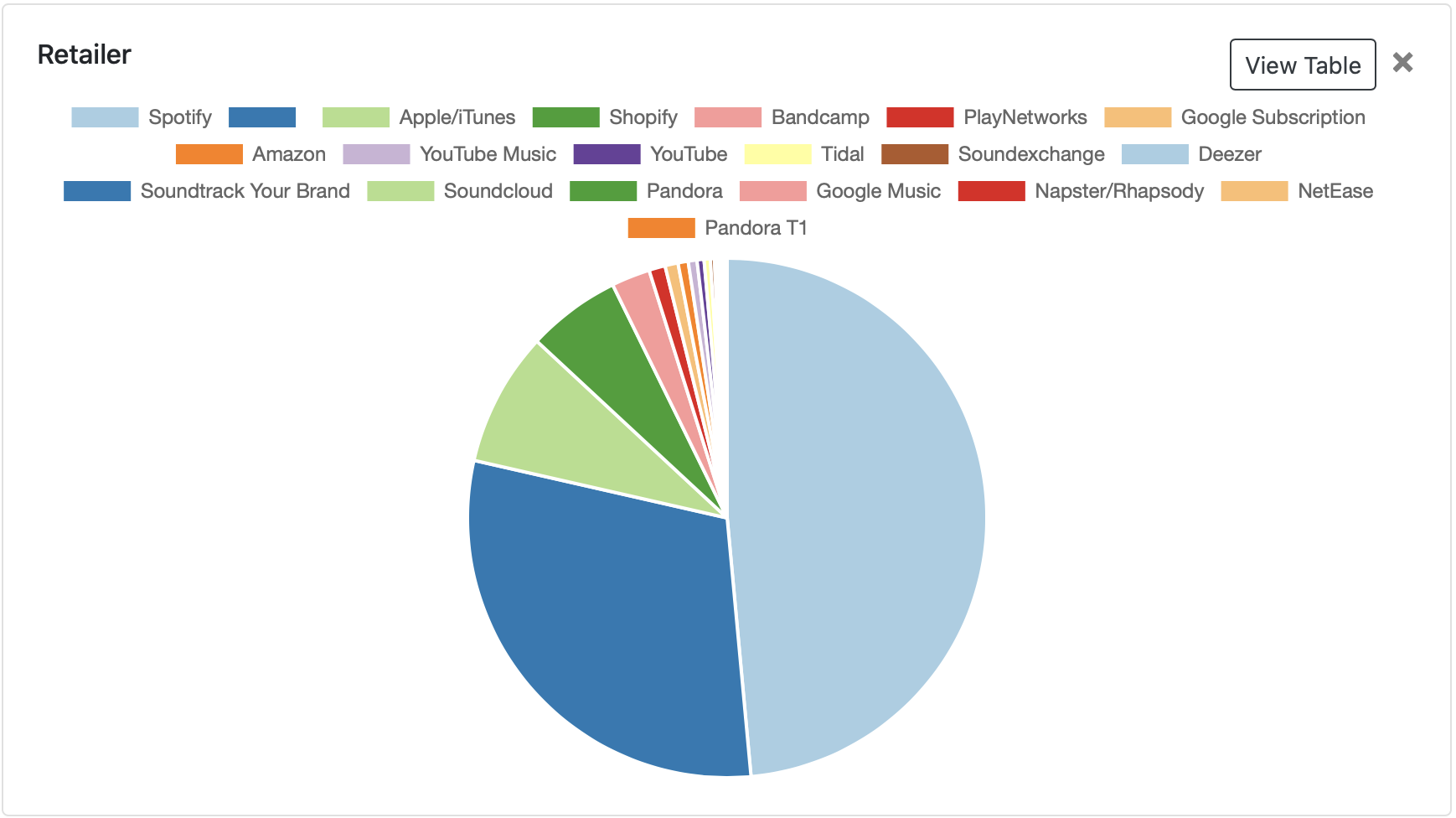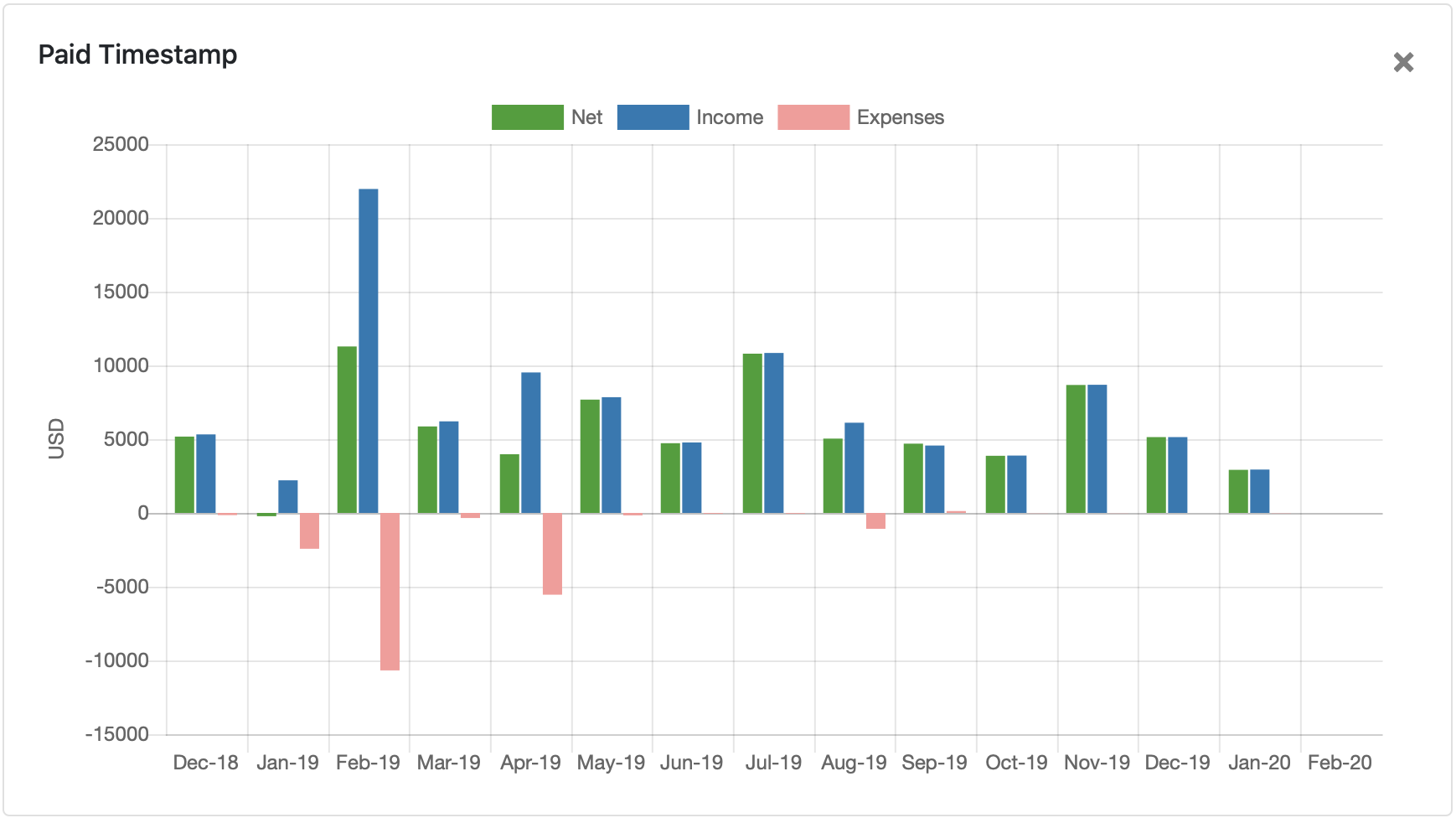🆕 This Week in IC – w/c June 10th
ft. the transactions page – how to use it and what it all means!
This week we take a look at the Transactions page… all the terms you’ll see there and the tools you can use to help you explore your data. Let’s get into it…
Columns

Use the columns select to choose which fields to display in the list view. Columns with arrow icons in the header are sortable. Some notable fields that may be useful:
| Field | Description |
| Transaction | The transaction id, also links to the transaction detail page. |
| Paid Timestamp | Date when the transaction was paid to you, used in calculating royalties. |
| Timestamp | Date when the transaction occurred, can often be before the paid timestamp |
| Type | One of income, expense, or transfer |
| Artist | The artist of the item the transaction belongs to |
| Item | The item the transaction belongs to |
| Contract | The contract for the transaction as calculated via the release, track, item, and transaction itself. |
| Total | The total of the transaction in the currency it was received in |
| Category | Used to group transactions. Income, expenses, and transfers all have their own categories. This field can be useful when trying to track down specific kinds of income or expenses |
| Release | The release of the item the transaction belongs to |
| Track | The track of the item the transaction belongs to |
| Retailer | The service or store that sold the music, e.g. Spotify |
| Source | The service that provided the transaction to IC, often a distributor or manual to indicate an additional. |
| Period | The period comprising the royalty round the transaction falls into according to its paid timestamp. |
| Created At | The date the transaction was created. |
| Memo | Notes attached to the transaction, often used for additionals to provide detail. |
Other available fields: Conversion Rate, Converted Currency, Converted Total, Currency, External ID, Importer Source, Region, Item, Ledger, Payee, Period, Published, Release, Retailer, Source, Track, and Updated At.
Filters

Click “Add Filter” on the upper toolbar to filter down the transactions in the list view. These filters will be used for any visualizations, actions, or exports you generate in the list view. Most of the transaction fields described above are filterable. The Operator select lets you choose how you want to filter the field, while the Value select is used to choose the value you’d like to use in the filter. You can filter using multiple fields, operators, and values. Saved filters can be modified or deleted by clicking the badge describing the saved filter.
If you’re viewing a transaction list within another page, for example a release detail page, the transactions will already be filtered to only show those relevant to the page you’re viewing. Use the primary transactions page, accessible via Royalties -> Transactions to look at all your transactions.
Reports
Use “Add Report” to group the transactions using various fields and show their aggregated totals in pie chart or table form.

Reports break values down by month when viewing by Timestamp, Paid Timestamp, or Created At – or leave the View by month using field empty to view lifetime totals. Change the Group by field to see your transactions grouped by different values. Select Total or Quantity in the Field value to see cumulative royalty totals or sales quantities in the report.

Timestamp, Paid Timestamps, and Created At values provide a bar chart with income, expense, and transfers – or quantity – by month. Reports provide a quick and easy way to see how large numbers of transactions are distributed. For more on creating detailed reports within your account, please see How Can I View My Royalty Analytics?.

Actions
Use the Actions drop-down menu to export transactions, bulk assign contracts, convert currencies, update Format and Timestamps, publish and unpublish, and delete transactions. The Action you select will effect all of the transactions you are currently viewing. Narrow down the transaction view using Filters as outlined above in order to include only the transactions you would like to apply the Action to.
- Export – If the various filters and visualizations aren’t enough for your particular needs, you can always export the transactions you’re viewing as a CSV. Selecting “Export” in the Actions menu will prepare and email a CSV of the transactions in the current view. You can also Customize Export to include or exclude certain fields from your exported data.
- Bulk Update – This action allows you to bulk update the Category, Contract, Format, Paid Timestamp, Published, Region, and Timestamp values of the Transactions in the list view. You can use this action to Publish and Unpublish transactions, select a new Timestamp or Paid Timestamp for Transactions, and update other values of transactions in bulk.

- Bulk Update From File – This action allows for Bulk Updating of Transactions from a CSV file in order to update and/or delete transactions in your account.
- Convert Currencies – This action allows you to convert currencies for transactions. By default, this option will update transactions without conversion rates to your account currency, according to rates specified by the European Central Bank and the transaction’s paid timestamp. Uncheck the Assign conversion rates automatically box if you would like to manually convert a selected currency to a specific conversion rate.
- Delete Transactions – This action allows you to delete selected transactions in bulk.
Please note – we advise against deleting transactions within IC, as this can lead to discrepancies between what is reported to you and what is being accounted for within IC. Deleting a transaction is one of the few things within IC you can do that is absolutely permanent. Please make sure it is necessary to delete before doing so – if you have any questions, please feel free to contact Support.
Exporting
You can export transactional data from the Transactions page in your account. To do so, simply click the teal Actions button near the top of the page and select Export from the drop-down menu. The Customize Export option allows you to customize your export to add or exclude additional columns to your preference. In addition, Filters can be added before Exporting in order to narrow down the Exported transactions to your preferred filters.